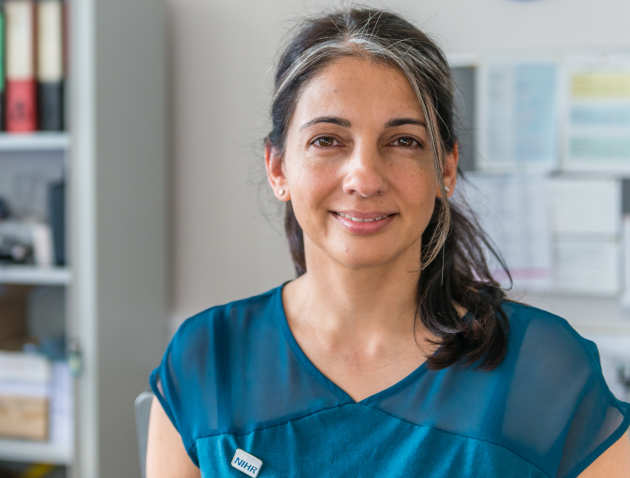 RESEARCH: DELAYING ONSET OF END STAGE RENAL DISEASE THROUGH DIET
RESEARCH: DELAYING ONSET OF END STAGE RENAL DISEASE THROUGH DIET
How did you get into research?
As a dietitian, one seeks to support health and wellbeing through the foods that we eat. This role was immediately fulfilling and allowed me to understand that a) everyone is different and b) there is a lot we do not know! This sparked a sense of curiosity to dig deeper and to prove the unproven based on what I heard and saw from working with people with a kidney condition. And so my research journey began!
What do you enjoy about research?
Lots! I enjoy the journey from uncovering a problem in clinical care, understanding its complexity, designing a project to reveal a solution and improving knowledge and clinical care as a result. This journey involves teamwork with those affected by the clinical condition (ie your participants and your patient advisors) as well as other healthcare professionals invested in finding a solution. I am constantly learning from the people affected by their kidney condition as well as awe-inspiring academics and clinicians.
What was the most difficult aspect of doing your PhD?
Doing a PhD is like climbing a very high, rugged mountain – you start off with a gentle stroll but the resilience and commitment you need steadily increases until you reach the summit (the viva!). The experience changed me as a person, as a researcher, as well as a clinician and educator.
What difference has your research training and experience made to your career?
Doing a PhD has improved my awareness and acceptance that there is an awful lot I do not know, that I will forever be learning from others as well as myself as I strive to improve care through practice and academically. It has also meant that I have largely forged my own path in the clinical academic dietetic world, all driven by the benefits to care I see it fosters. Therefore, my research training and experience continues to provide me with the confidence to persevere on this less well trodden path.
What has made a difference to progressing your research career?
There are two critical factors that have transformed my research career: a) the encouragement of key individuals who have mentored me throughout my research career – either formally or informally and b) the financial and academic support (and belief!) of organisations who have provided that all-important funding and networking. Imperial is, I believe, top of the table at building this supportive environment to undertake clinical research which includes the immense and generous support from Imperial Health Charity, Imperial College London, the NIHR as well as a multitude of other charities and commercial funders.
How has research changed your clinical practice?
My clinical practice is more informed as I am up to date on the literature and I also have a deeper understanding of the clinical condition and treatments based on research I have undertaken. My style of approach in clinical consultations is more rounded and sensitive, again based on the in-depth involvement of people with a kidney condition in the research I have undertaken. As a result, I believe my clinical practice to be more effective than it used to be. However, that is something I have yet to prove conclusively!
Where do you see your clinical academic career going over the next five years?
In the next 5 years I see myself reflecting on and continuing the work that is having an impact on the care experienced by people with a kidney condition. I will continue to work as a clinician to hear first-hand the issues that people experience. I will also be sharing my clinical academic expertise by mentoring others in the way that it supported me in navigating my own career.
Dr Lina Johansson, Clinical Academic Dietitian, Imperial College London, l.johansson@imperial.ac.uk
Download Lina's case study: Lina Johansson: Case study (PDF)
Useful links
Contact us
The CATO Team and Radiographers Incubator work on a Hybrid model, combining days in the office with days working from home – the best way to reach us is by email.
cato@imperial.ac.uk
radresearch@imperial.ac.uk
+44 (0)20 3313 7397

